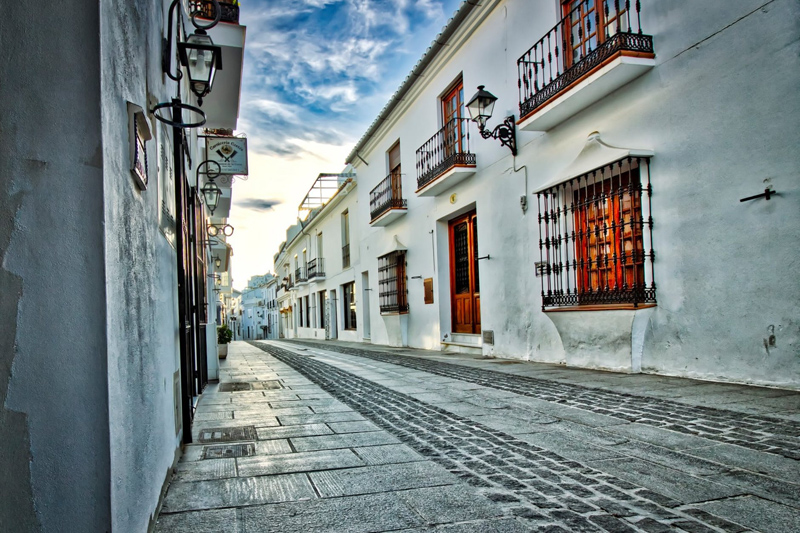El fin de las vacaciones – Listening and reading

Here is a different way to learn and improve your Spanish, based on listening, reading, comprehension and putting into practice what you have learned.
First of all, listen to this monologue, “El fin de las vacaciones”. If possible, just listen, don't read its transcription.
Second, listen to it again, but now reading the text at the same time.
New words or expressions? No problem! It would be great if you could take notes. Use paper and pencil (or your computer!) and create your own list of new Spanish vocabulary. Creating this list will help you memorize new words and expressions, although you can find a list of vocabulary used in this monologue at the end of this article.
But don't think that's all! In future articles we'll go on working with this audio and its text, with grammar points, explanations, exercises and tests.
Listening
To listen to the monologue “El fin de las vacaciones”, click here.
Reading
“El fin de las vacaciones” transcription:
"Bueno... Es septiembre. Estamos en septiembre. Y el verano termina. El verano se va.
Adiós a agosto, al calor, a los días más largos, a los días con más luz.
A partir de ahora, los días son más cortos.
Y también, a partir de ahora, el tiempo cambia. Poco a poco, las temperaturas bajan.
Adiós a las vacaciones. Es el fin de las vacaciones. Los estudiantes vuelven al colegio o a la universidad. Los trabajadores vuelven a sus trabajos.
Pero el fin del verano no es malo. La gente está más descansada, y todos ven de nuevo a sus compañeros de colegio o de trabajo.
Dentro de poco llega el otoño. El otoño también es una estación bonita. ¿Por qué no?
A mí me gusta el otoño."
Vocabulary
You can find below a list of words used in this article (in alphabetical order). You can also listen to their pronunciation here.
First of all, listen to this monologue, “El fin de las vacaciones”. If possible, just listen, don't read its transcription.
Second, listen to it again, but now reading the text at the same time.
New words or expressions? No problem! It would be great if you could take notes. Use paper and pencil (or your computer!) and create your own list of new Spanish vocabulary. Creating this list will help you memorize new words and expressions, although you can find a list of vocabulary used in this monologue at the end of this article.
But don't think that's all! In future articles we'll go on working with this audio and its text, with grammar points, explanations, exercises and tests.
Listening
To listen to the monologue “El fin de las vacaciones”, click here.
Reading
“El fin de las vacaciones” transcription:
"Bueno... Es septiembre. Estamos en septiembre. Y el verano termina. El verano se va.
Adiós a agosto, al calor, a los días más largos, a los días con más luz.
A partir de ahora, los días son más cortos.
Y también, a partir de ahora, el tiempo cambia. Poco a poco, las temperaturas bajan.
Adiós a las vacaciones. Es el fin de las vacaciones. Los estudiantes vuelven al colegio o a la universidad. Los trabajadores vuelven a sus trabajos.
Pero el fin del verano no es malo. La gente está más descansada, y todos ven de nuevo a sus compañeros de colegio o de trabajo.
Dentro de poco llega el otoño. El otoño también es una estación bonita. ¿Por qué no?
A mí me gusta el otoño."
Vocabulary
You can find below a list of words used in this article (in alphabetical order). You can also listen to their pronunciation here.
| a = to | las = the (femenine, plural) |
| adiós = goodbye | los = the (masculine, plural) |
| a partir de ahora = from now on | luz (la) = light |
| agosto = August | llega = it arrives (Infinitive = Llegar) |
| ahora = now | malo = bad |
| al = a + el = to the | más = more |
| bajan = they fall (talking about temperatures) (Infinitive = Bajar) | no = no, not |
| bonita (feminine) = nice, beautiful | o = or |
| bueno = well, good | otoño = fall (season) |
| calor (el) = heat | pero = but |
| cambia = it changes (Infinitive = Cambiar) | poco = few, little |
| colegio (el) = school | poco a poco = gradually |
| compañeros de colegio= school friends | ¿por qué...? = Why...? |
| con = with | se va = it goes away, it leaves (Infinitive = Irse) |
| cortos = short (masculine, plural) | septiembre = September |
| de = of, from | son = they are (Infinitive = Ser) |
| de nuevo = again | sus = their |
| dentro de poco = shortly | también = too, also |
| descansada (feminine) = rested | temperaturas (las) = temperatures |
| días (los) = days | termina = it ends, it is ending (Infinitive = Terminar) |
| el = the | tiempo (el) = weather, time |
| en = in | todos (masculine, plural) = all |
| es = it is (Infinitive = Ser) | trabajadores (los) = workers |
| está = it he / she is (Infinitive = Estar) | trabajo (el) = job, work |
| estación = season, station | una (feminine) = a |
| estamos = we are (Infinitive = Estar) | universidad (la) = university |
| estudiantes (los) = students | vacaciones (las) = vacation |
| fin (el) = end | ven = they see (Infinitive = Ver) |
| gente (la) = people | verano (el) = summer |
| la (feminine, singular) = the | vuelven = they come back (Infinitive = Volver) |
| largos = long (masculine, plural) | y = and |

Related Articles
Editor's Picks Articles
Top Ten Articles
Previous Features
Site Map
Content copyright © 2023 by Angeles Fernández. All rights reserved.
This content was written by Angeles Fernández. If you wish to use this content in any manner, you need written permission. Contact Angeles Fernandez for details.






